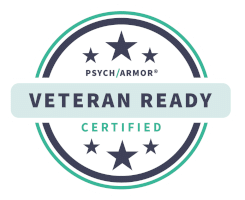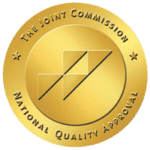Home | Treatment | What We Treat | Mental Health Disorders
What We Treat
Mental Health Disorders
Mental health disorders affect how individuals think, feel, behave, and interact with others, often disrupting daily life. These conditions can impact relationships, work, and overall well-being, making seeking support for proper diagnosis and treatment essential.
Treatment for mental health disorders at Pasadena Villa
Mental health conditions vary in severity and duration, but professional treatment may be necessary when they disrupt daily life and functioning.
At Pasadena Villa, we prioritize a comprehensive, whole-person approach to mental health care. Instead of treating symptoms, we focus on uncovering and addressing underlying disorders and root causes.
Defining mental health
Mental health awareness has grown significantly in recent years. With 20% of US adults experiencing mental illness annually, it’s essential to understand what mental illness is, the consequences of untreated conditions, and how to seek effective help.
For those newly diagnosed or uncertain about their struggles, these statistics highlight that mental health challenges are more common than often discussed. Unfortunately, stigma has long silenced conversations about these issues, but attitudes are shifting, opening the door to support and recovery.
Mental illness by the numbers
1 in 5 adults in America
experiences mental illness each year
1 in 20 adults in America
experiences serious mental illness each year
50% of all lifetime mental illness
begins by age 14, with 17% by age 24
FAQs
Questions about mental illness
What is mental illness?
Mental health disorders affect a person’s thinking, emotions, moods, and behaviors and can significantly impact daily life and relationships. These conditions typically arise from multiple factors, including genetics, environment, lifestyle, stress, trauma, and brain structure.
If you notice changes in your mental health or suspect something isn’t right, it’s crucial to seek a professional diagnosis. Early intervention can lead to effective treatment, and you have the power to take an active role in your recovery journey.
What are the signs and symptoms of mental illness?
Mental health conditions have unique symptoms, but there are common warning signs to watch for, including:
- Excessive worry or fear
- Persistent sadness or low mood
- Difficulty concentrating or confused thinking
- Extreme mood swings, including euphoria
- Intense irritability or anger
- Withdrawal from social activities
- Trouble connecting with others
- Changes in sleep patterns or fatigue
- Changes in appetite or eating habits
- Altered sex drive
- Delusions or hallucinations
- Unexplained physical symptoms (headaches, stomach aches)
- Thoughts of suicide or self-harm
- Struggling to manage daily tasks or cope with stress
Early recognition of these signs can lead to timely treatment and support, improving the chances of recovery.
pasadena Villa
Our Approach
At Pasadena Villa, we tailor each client’s treatment plan to their unique needs, utilizing evidence-based therapies, holistic treatment options, family therapy, and animal-centered therapy.
Mental Health Conditions We Treat
At our facilities, we treat adults (18+) of all genders who struggle with the following mental health disorders:
Pasadena Villa
Our Levels of Care
From residential treatment to partial hospitalization and intensive outpatient programs, our comprehensive continuum of care meets individuals at every stage of their recovery journey.
Take the first step toward recovery.
Our admissions experts are here to answer your questions and help you begin the process.
Explore our locations or fill out our contact form today.
Your privacy is our priority. All communication is completely confidential.




